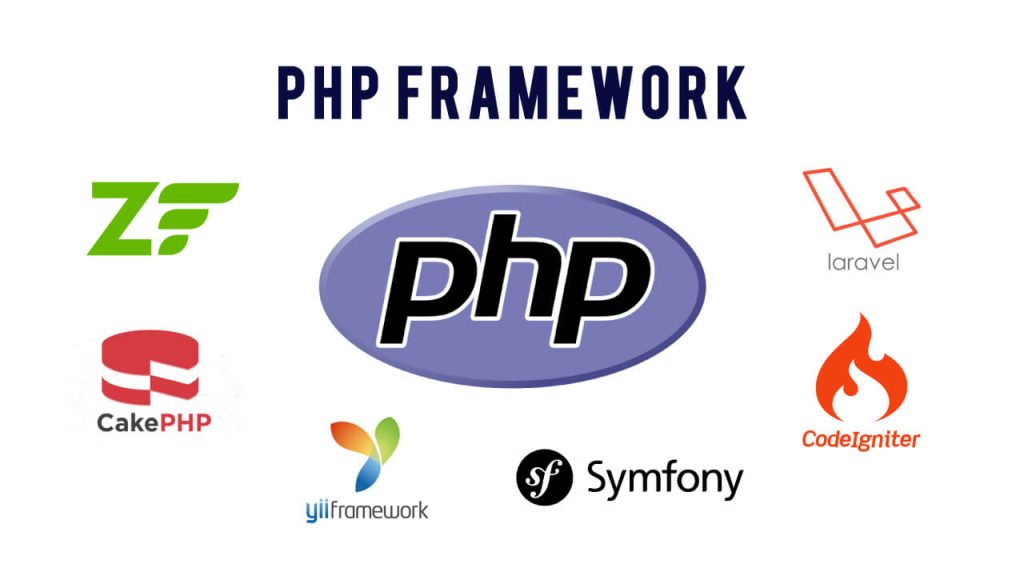
Introduction
In the world of web development, PHP, a versatile and widely used scripting language, plays a pivotal role. PHP is the engine behind many websites and web applications, powering everything from small blogs to large e-commerce platforms. One of the key factors contributing to PHP’s popularity is its ability to work seamlessly with frameworks. In this article, we will explore the concept of PHP framework and what it means in the context of web development. Learn more about the PHP framework at the best PHP classes in Nagpur.
What is PHP?
Before diving into the world of PHP frameworks, let’s first understand what PHP itself is. PHP stands for “Hypertext Preprocessor.” It is an open-source, server-side scripting language designed for web development. PHP scripts are executed on the server, and the results are sent to the client’s web browser, which allows dynamic and interactive web pages to be created. PHP is known for its ease of use, wide community support, and compatibility with various databases, making it a top choice for web developers.
The Need for PHP Frameworks
Web development is a complex task that involves various components, including handling user requests, managing databases, and ensuring the security of the application. Without a structured approach, development can become chaotic, leading to inconsistent code, errors, and difficulties in maintaining the project. This is where PHP frameworks come into play.
Understanding PHP Frameworks
Benefits of PHP Frameworks
PHP frameworks provide a structured and organized approach to web development. They offer a set of pre-built tools, libraries, and conventions, which can significantly speed up the development process. Frameworks encourage best practices, such as the Model-View-Controller (MVC) architecture, leading to more maintainable and scalable code.
Popular PHP Frameworks
There are several PHP frameworks available, each with its unique features and advantages. Some of the most popular ones include Laravel, Symfony, CodeIgniter, Zend Framework, and Yii. These frameworks have large communities and extensive documentation, making them accessible to developers of all skill levels.
Working of PHP Frameworks
MVC Architecture
The core concept of PHP frameworks is the Model-View-Controller (MVC) architecture. This separation of concerns ensures that the application’s data, presentation, and control logic are distinct, making the code easier to manage and update. The Model represents the data, the View manages the user interface, and the Controller handles user input and controls the flow of the application.
Core Features
PHP frameworks come with a wide range of core features, including URL routing, authentication, and database abstraction. These features reduce the need to reinvent the wheel, allowing developers to focus on creating unique and valuable features for their projects.
Libraries and Modules
Frameworks offer libraries and modules that simplify common tasks. These can include form handling, session management, and authentication, among others. Developers can readily integrate these components into their applications, saving time and effort.
Advantages of Using PHP Frameworks
The use of PHP frameworks offers several advantages. They promote code reusability, increase development speed, and ensure code consistency. Additionally, frameworks enhance security, as they often come with built-in protection against common web vulnerabilities.
Disadvantages of Using PHP Frameworks
While PHP frameworks provide numerous benefits, they are not without drawbacks. Learning a framework can have a steep learning curve for beginners, and some frameworks may have limitations that don’t align with specific project requirements. It’s essential to carefully evaluate the pros and cons before choosing a framework.
Common PHP Frameworks
Laravel
Laravel is a widely popular PHP framework known for its elegant syntax and powerful features. It offers a robust ecosystem, making it suitable for a variety of web applications.
Symfony
Symfony is a high-performance framework that focuses on flexibility and scalability. It is a preferred choice for complex enterprise-level applications.
CodeIgniter
CodeIgniter is a lightweight framework that is easy to learn and suitable for small to medium-sized projects. It provides a minimalistic approach to web development.
Zend Framework
Zend Framework is a robust and secure choice for large-scale applications. It emphasizes flexibility and allows developers to use the components they need.
Yii
Yii is a high-performance PHP framework known for its speed and efficiency. It is a good option for projects that demand high performance.
Choosing the Right PHP Framework
Selecting the right PHP framework depends on various factors, including the project’s requirements, community support, and the developer’s familiarity with the framework. It’s crucial to align the choice with the specific needs of the project.
Building a PHP Application with a Framework
Creating a PHP application with a framework involves several steps. These include setting up the development environment, defining routes, creating controllers and views, and integrating databases. Each framework has its unique way of accomplishing these tasks, so it’s important to refer to the framework’s documentation for guidance.
Conclusion
In conclusion, PHP frameworks are an essential tool in modern web development. They provide a structured approach, promote best practices, and offer a range of features that simplify development. While they come with advantages and disadvantages, their benefits in terms of code organization, security, and speed make them a valuable choice for developers.
Frequently Asked Questions
1. What is a PHP framework?
A PHP framework is a collection of pre-built tools, libraries, and conventions that simplify web development. It encourages best practices and helps developers create web applications more efficiently.
2. Why use a PHP framework?
Using a PHP framework streamlines development, enhances code organization, and promotes security. It saves time and effort by offering pre-built features and components.
3. What is MVC architecture?
MVC stands for Model-View-Controller, an architectural pattern used in web development. It separates an application into three interconnected components: the Model (data), the View (user interface), and the Controller (logic).
4. Which PHP framework is the best?
The best PHP framework depends on your project’s requirements and your familiarity with the framework. Popular options include Laravel, Symfony, CodeIgniter, Zend Framework, and Yii.